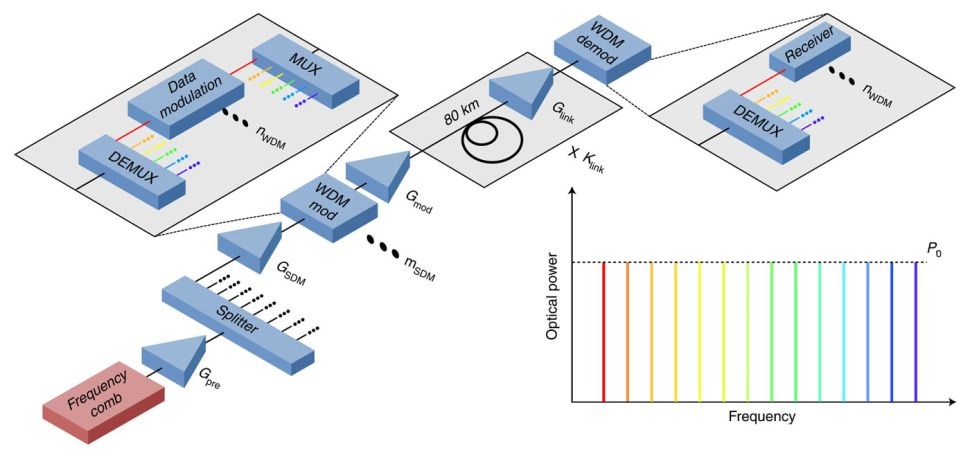Scientists have successfully transmitted a record data rate of 1.84 petabits per second, a new record in data transfer rate. A team of scientists from the Technical University of Denmark in Copenhagen managed the stunning feat using a single computer chip.
The 1.84 petabits of data are equivalent to downloading 230 million photographs in a second. It is also higher than the rate of traffic that travels through the internet’s backbone each second.
The milestone achievement is a record in data rate to date.
“You could say the average Internet traffic in the world is about a petabit per second. What we transmit is two times that,” said study lead Asbjørn Arvad Jørgensen.
“It’s an incredibly large amount of data that we’re sending through, essentially, less than a square millimeter [of cable]. It just goes to show that we can go so much further than we are today with Internet connections.”
Check out: China Claims a New 6G Speed Record of 206.25 Gbps
The record download speed came with a photonic chip
In their experiment, the scientists used a photonic chip to divide the data stream into thousands of channels. The team was able to transfer data over a 7.9km fiber cable.
The team said the main data stream was divided into 37 sections where each section was allocated to its own fiber-optic core. These channels were divided into 223 data chunks.

“This ‘frequency comb’ of equidistant spikes of light across the spectrum allowed data to be transmitted in different colors at the same time without interfering with each other, massively increasing the capacity of each core,” the report states.
The team measured the output one channel at a time since no computer could process such a high volume of information in seconds.
The latest LG 6G data test makes new distance record
Using a single chip was a highlight of the test
It’s almost common for scientists to record in data transfer but they are often the result of elaborate configuration. This particular test achieved the feat using a single computer chip as its light source.
Experts say the experiment could help developers design chips that can send and receive more data from current models. Significantly, they can be more efficient with bandwidth and incur less energy use.
Are you getting a reliable and consistent download speed as promised by your service provider? You can share in the comments below.
